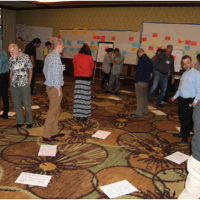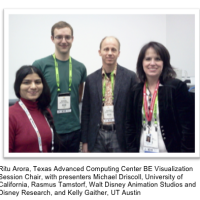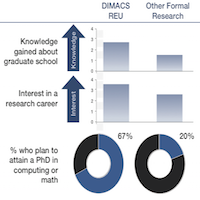2014 CRA Outstanding Undergraduate Researcher Awards
This year’s nominees were a very impressive group. A number of them were commended for making significant contributions to more than one research project, several were authors or coauthors on multiple papers, others had made presentations at major conferences, and some had produced software artifacts that were in widespread use. Many of nominees had been involved in successful summer research or internship programs, many had been teaching assistants, tutors, or mentors, and a number had significant involvement in community volunteer efforts. CRA gratefully acknowledges the support of Microsoft Research and Mitsubishi Electric Research Labs (MERL) who sponsor the Outstanding Undergraduate Researcher Award program in alternate years. Mitsubishi Electric Research Labs is the sponsor of this year’s awards.










